Many businesses have already begun planning out their marketing mix for the year. This means it’s time to take stock of the old strategies that used throughout the year and weigh them up against new technologies and techniques that have been designed to help companies achieve a competitive edge.
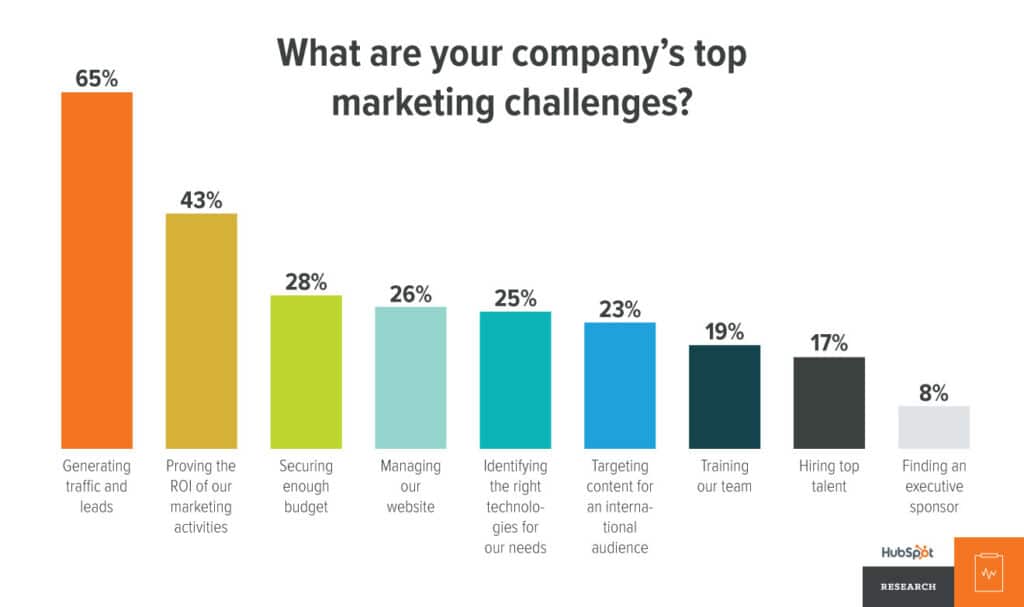
In short, it’s prime time to determine what lead generation activities have worked, which ones have fallen short, and what new ideas could be tried in the coming year. There isn’t exactly a magic formula for generating more leads, and it’s clear that tactics for boosting them can vary between industries; however, it appears that diversifying your efforts in order to attract and convert more customers has its payoffs.
That means, it’s not just about the local SEO or all about social media. It’s about assessing how today’s most effective lead-generation tools can be effective for your business.
In this guide, I’ll explore how to strategize in the forthcoming year to adopt the most compelling and dynamic solutions to generate more leads, and in fact, better-quality leads.
Defining and Refining your Vision
What’s your vision for lead generation in 2020? Sure, you’ll probably say “more.” Clearly, more leads are a good start, but let’s delve deeper. Let’s shoot for high-quality leads, leads that are more likely to convert. While defining or refining your vision for lead generation, take some time to map out a plan.
Define your objectives by asking some pertinent questions, like: Who is your target audience? What types of marketing campaigns do you envision for the upcoming year, and how can you align our lead generation efforts with those campaigns?
Creating a vision for the year ahead means outlining your goals and following up with strategies designed to support them. Boosting lead generation isn’t just about choosing the right tactics; it’s about creating clear and quantifiable goals, making the most of your marketing budget dollars, and directing your staff and resources in a manner that supports your marketing initiatives.
Developing a Strategy for Lead Generation Success
Once you’ve arrived at a clear vision for the upcoming year, you’ll be ready to strategize to meet your goals. Begin the new year by carefully examining the previous one.
Where did most of your leads originate from? Do you know? For instance, do you have quantifiable numbers that clearly show where your leads came from the previous year? What measures worked last year? What measures fell short? Obviously, you’ll want to continue what’s worked well and revise what hasn’t in order to get the most from your marketing dollars.
As mentioned before, you’ll want to diversify your efforts to generate more leads. Last year, 68% of B2B companies relied on landing pages, but that’s not the only way to win leads.
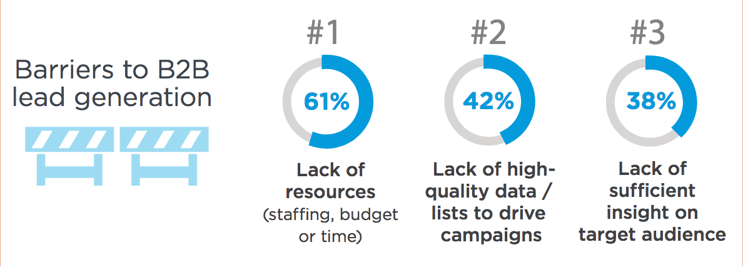
I’ll discuss the most effective forms of lead generation shortly, but as you read through them bear in mind that you’ll probably want to consider employing more than just one, because it’s never a great strategy to put ‘all your eggs in one basket.’ But, you’ll need to determine which ones are likely to be most effective within your industry and which ones your business can afford.
Lead-Boosting Tactics
The following measures can help you grow your lead pool and, ultimately, your company’s bottom line. Some of these tactics may work better for your business than others, so it’s up to you to carefully weigh them up in association with the measures you’ve used that have worked well and those that have not. As you choose strategies to adopt, consider what works for your industry—even for your competitors. Investing in the right measures can have a positive effect on your ROI.
As of this year, there are roughly 5.6 billion active email accounts. Since about “86% of professionals prefer to use email when communicating for business purposes,” it makes sense to include email as a vital part of your marketing campaign.
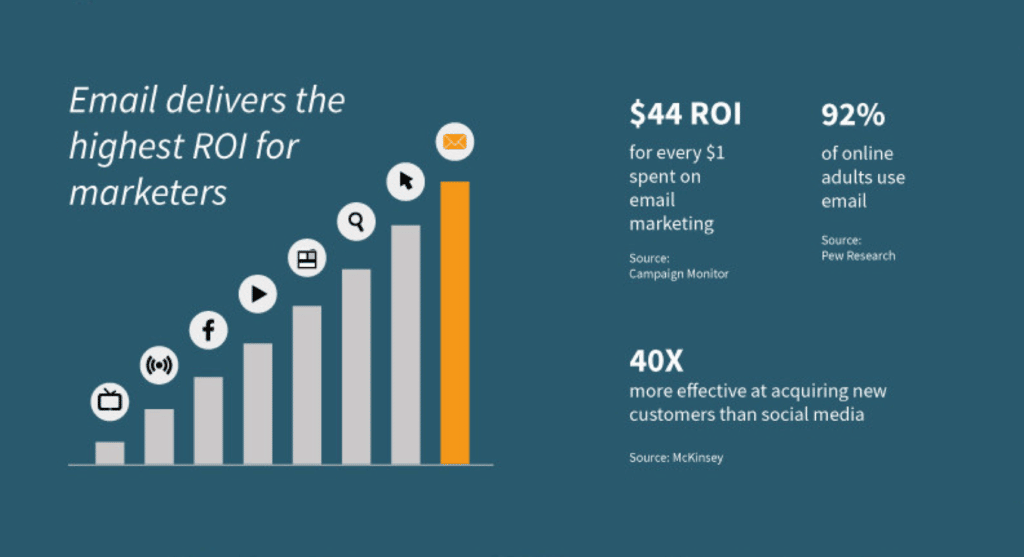
Email marketing is more than two decades old, so it’s stood the test of time. However, today, consider employing email marketing for lead generation with a twist—using automated emails through customized workflows.
By adopting email automation tools, your business can send highly targeted emails that are personalized for your leads. According to eMarketer, “marketers who connect with customers through automated emails see conversion rates as high as 50%.”
Additionally, automated emails achieve a 119% higher click rate than other emails like broadcast emails. That’s a stat that’s hard to ignore if you’re on the fence with automated email. Because personalized emails are known to generate up to six times more revenue than emails that are non-personalized, it makes fiscal sense to rely on automated emails for enhanced lead generation.
After all, “79% of top-performing companies have been using marketing automation for three or more years.” Consider investing in automation processes for your own marketing endeavors. Some great email marketing services are GetResponse and AWeber — they can help you create the emails and create workflows that make sense for your business.
Finally, here are some recommendations that must be done:
- List segmentation
- Build out customized workflows that align with sales initiatives
- Test different subject lines
- Tie in with targeted landing pages
- Use as another avenue to drive engagement both with prospects and customers
SEO
Do you have an SEO guru on your staff? Many businesses do not, so they contract with an SEO firm to ensure that their search engine optimization is up to snuff. Because more than 90% of online experiences start with a search engine, your business needs to make sure that it can be found via a search engine.
If you are not on page one of Google’s search results, you are less likely to be found—and possibly less likely to be found than your competitors. SEO is complex and ever-changing, but, simply put, it’s essential for businesses to consider it when working to attract customers or clients to their business website.
SEO experts work to make sure that your business ranks high in the search engine results. Increased online visibility translates to more leads for your business—and more leads, ideally, leads to more paying customers.
Can’t afford an SEO expert? Check out the guide I just put together around SEO here. Also, SEMRush has a great tool to help with your SEO if you are looking to go the DIY route.
Local SEO
It’s no longer enough just to be SEO friendly in general, you’ve got to be SEO friendly for your local audience. If you’re in a market where you work with local businesses, you need to be optimized for your local audience.
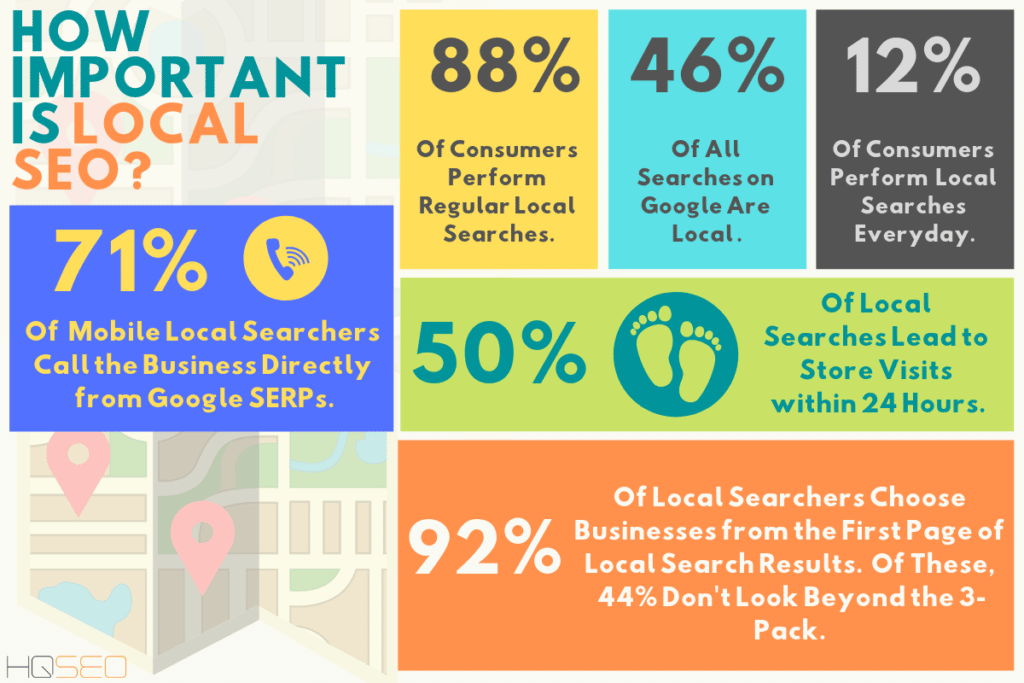
Whether you perform SEO in house or with the help of a contract service, you need to get the local part right so that customers can find you when they search for ‘local businesses near me’ or for your type of business in a given city or region.
When searching online, more than 80% of people look up a location on Google Maps, but if you’re not optimized for local searches, you might not be found on a map. As part of your plan for SEO in 2020, be sure to target your local audience.
Optimize for Mobile
According to Forbes, 57% of all online traffic comes from smartphones and other mobile devices. If you aren’t optimized for these mobile devices, you are likely losing leads to companies that are optimized for mobile searches.
Think about your own mobile usage. How long are you willing to wait for a website to load before you click off and visit another site? Businesses are losing customers because they have not optimized their websites for mobile platforms.
Delayed loading times, a decreased quality of images, designs that translate poorly to the mobile platform—these elements can substantially harm your opportunity to convert leads into customers.
As rule number one, does you lead generation form load properly on a smartphone? If not, you’ll need to make some key fixes to ensure that you’re optimized for mobile users and providing them the high quality experience they expect.
Services like Instapage and Elementor can be great to create beautiful websites that are also optimized for mobile. If your web design doesn’t support mobile, it’s time to upgrade to something that does so you don’t lose valuable leads.
Lead Forms
Speaking of lead forms, you do have one, right? By adding lead generation forms to your business website, you can form a lead pipeline that can be directed to your inbox every single day.
In terms of what types of forms work best, that depends on you and most companies experiment with various form styles and ultimately refine one to suit their needs. While there are many lead form generation services available for free today, most require payment.
If you rely on Google Analytics, it’s a good idea to opt for Google Forms because they integrate seamlessly with the analytics platform and are easy to use.
Lead Magnets
A lead magnet is a compelling item that can help you attract more B2B leads. Think of a lead magnet as a piece of content, like an e-book or webinar. In exchange for their email address, allow a potential lead to download this content or to access it in some other way.
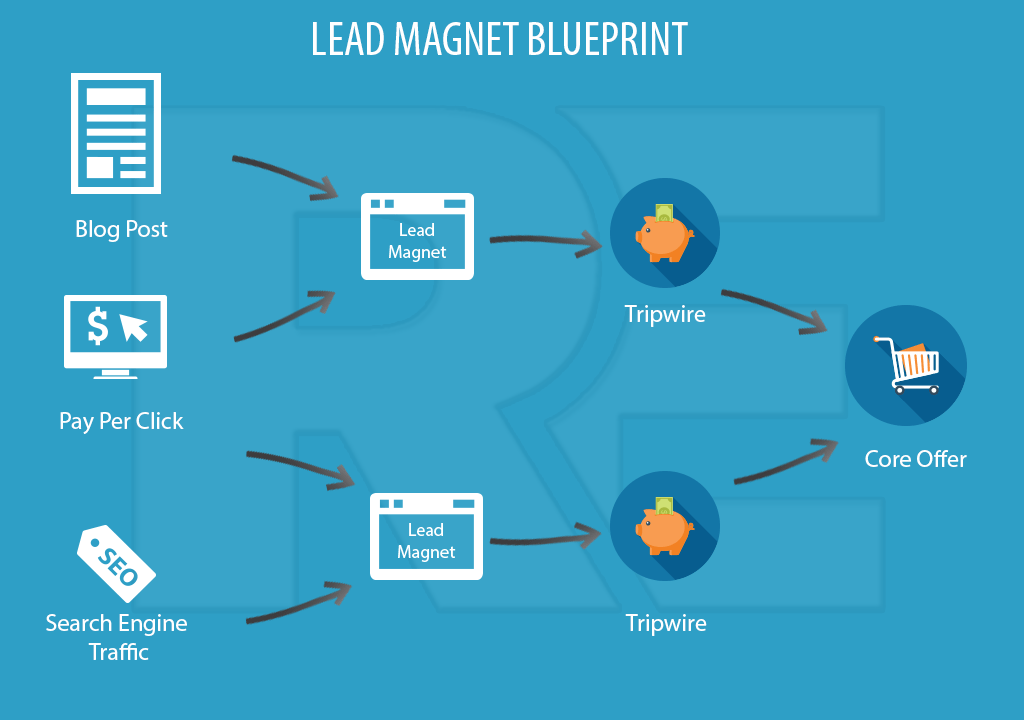
In short, it’s an exchange, but it’s an easy one that many business customers are agreeable to provided that the supplied content is valuable or useful in some way. A high-value piece of content is likely to achieve more downloads (and garner more email addresses) and more shares.
Diversify Your Content
Let’s take it for granted that you’re already on board with the need to produce high-quality content to promote your products and services. High-quality content is crucial for supporting your SEO and for helping you achieve more conversions.
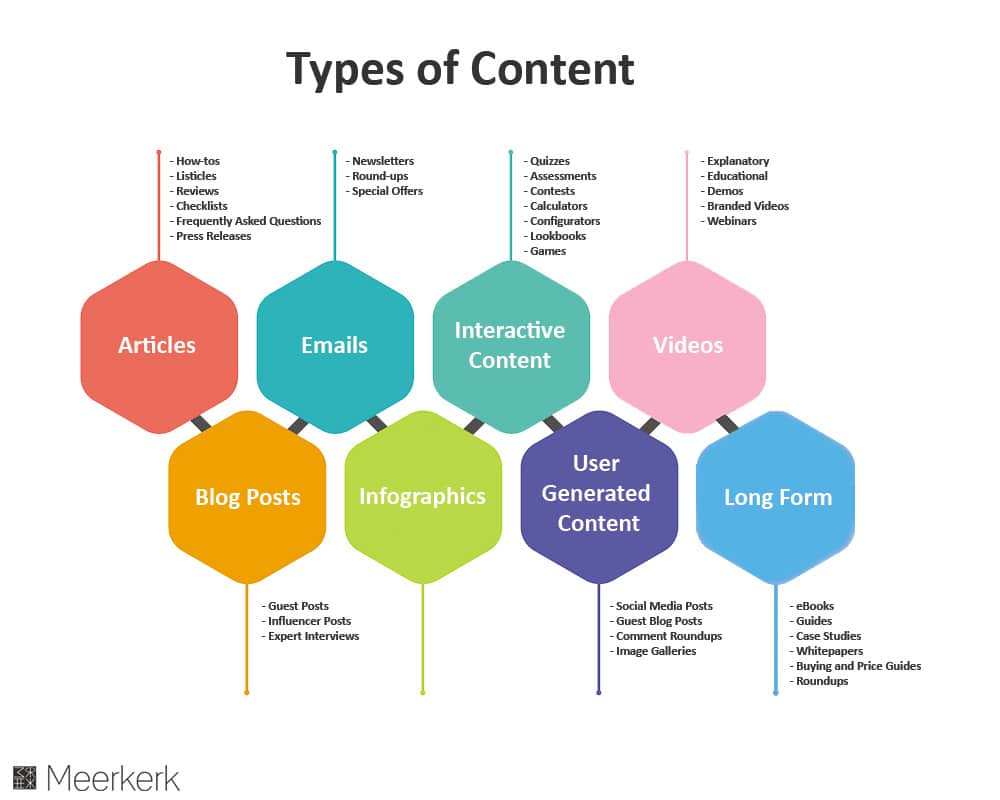
Consider, however, creating a diverse body of content to promote your brand—not just textual content. Use photos, images, videos, and infographics to nurture your leads and convert them into paying customers.
Companies can increase their revenue substantially simply by adding new content in the form of infographics, question-and-answer blog posts, and videos. According to recent statistics, “85% of B2B marketers say that lead generation is their most important content marketing goal.”
Lead generation and content marketing go hand in hand. From blogging to creating SEO-friendly content, it’s vital to support the relationship between your content and lead generation.
Social Media
Maintaining a social media presence is important, although many B2B businesses may still be skeptical about this. But here’s the thing to remember, your social media content is still content, and its content that can boost your SEO.
As part of your strategy for diverse lead generation, social media should be a cornerstone of that plan. In terms of which platforms are most important, most experts agree that maintaining a presence on Facebook, LinkedIn, and Twitter are the most essential, but there may be other social channels that are also relevant to your industry.
If you are having a hard time keeping up with posting on social media, look into using a tool like Hubspot to schedule out the posts ahead of time.
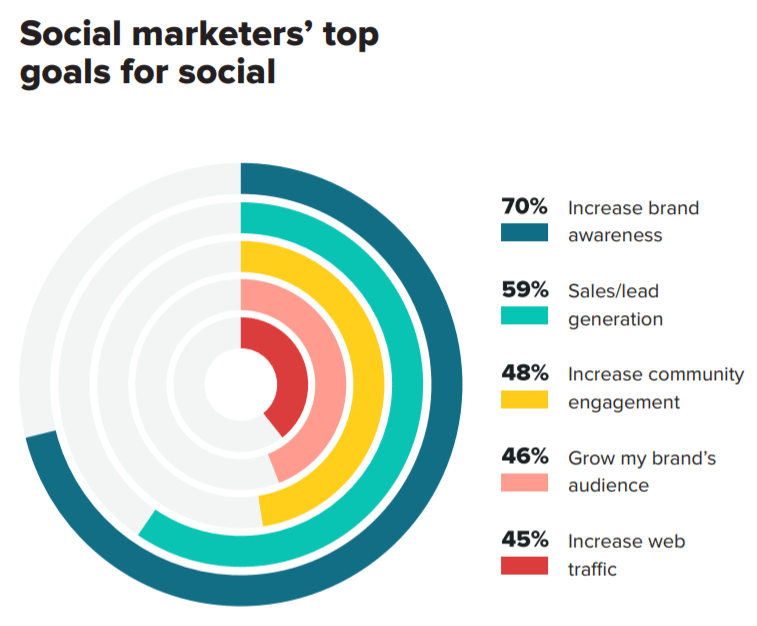
Also, social media, like SEO, is a constantly-changing landscape. Monitor what’s going on. Already, many marketing experts are acknowledging that, of these three major social platforms, LinkedIn may be the most important for B2B businesses.
Use Analytics—All the Time
Can you ever analyze too much? Probably not, according to SEO experts. The truth of the matter is, you’re going to wind up wasting a lot of money if you don’t take care to analyze your lead generation strategies. How do you know what measures are working best? What measures are not performing as you expected them to? By performing analytics is how. Analytics can tell you what measures work with quantifiable measurements.
For instance, imagine you have five landing pages (and be sure you’re using landing pages, as 68% of B2B businesses use them to generate leads successfully). Let’s say one is achieving about 75% of the lead generation for the five combined.
Naturally, you want to continue using the successful landing page, but what about the other four? As soon as you note that these other pages are performing poorly, you can take steps to refine them. It’s important to note where your leads are coming from.
By carefully tuning into your Google Analytics platform or some other measurement platform, you can stay on top of your marketing efforts, which will ultimately make sure you waste less money and become more successful at generating leads.
Paid Advertising
If your SEO is terrific and you’re generating website traffic through organic searches at a fantastic clip, you might not be overly concerned about paid advertising. However, if you’re still developing your SEO strategies and haven’t made it into one of Google’s 3-pack slots (the first three spots in the search results), you might want to consider paid advertising in order to attract more leads.
You’ll find lots of different options when it comes to paid advertising, ranging from Google AdWords to Facebook ads. In addition, some businesses rely on affiliate marketing, media buys, or might even trade ad space with a non-competitor business.
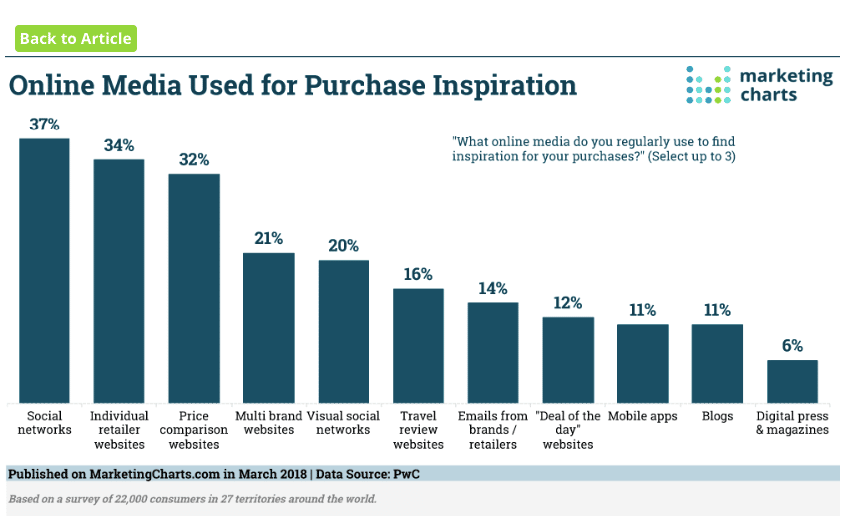
You’ll naturally need to consider how much of your budget to devote to paid advertising, but remember this: currently, businesses tend to make about $2 for every $1 they spend with Google AdWords alone.
As you consider your ROI, you’ll want to make sure that you wind up getting more than you put in when it comes to this type of lead generation. According to reports, “Digital lead generation advertising spending is seen to hit $201 billion by 2023.” In short, your competitors will be investing in paid advertising. So how much will you invest in this year compared to the year before?
Check out: How to Run Digital Ads That Will Drive Leads and Sales
Wrapping it Up
Lead generation is paramount for businesses of all sizes, and as you can see, there are lots of different avenues you can take to increase your leads. Unfortunately, there’s no exact formula you can rely on.
Know that diversifying your marketing strategies and tactics while paying close attention to what works best, can refine your lead generation initiatives so that you will be able to attract more leads and, ultimately, close more sales.
So for this year, don’t rely on past strategies alone for lead generation. Take time to evaluate their past performance and also look to adopt some of the strategies outlined here so you can achieve your marketing and lead generation goals in the year ahead.






4 Responses